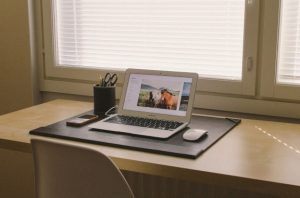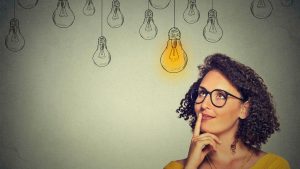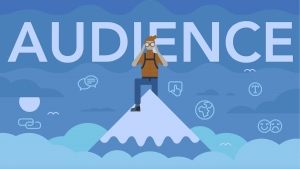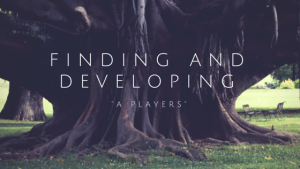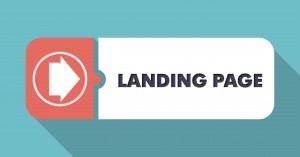This may be the antidote to the generational divide in the workplace
When we move beyond “right” and “wrong” and into curiosity, we might discover why this tool strikes such a chord.
BY Ophira Edut
Can a map of the stars and planets help you crush your career and unpack life’s big decisions? Can it also help you understand your coworkers and bridge the generational divide between Gen Z, millennials, Gen X, and boomers?
If you’re under age 35, the answer is likely a resounding “ofc” to the first part.
A recent survey by Edubirdie found that 80% of millennials and Gen Z (ages 16-34) believe in astrology and that 63% of them believe it’s positively impacted their careers. Of the study’s 2,000 U.S.-based participants, a whopping 72% of them also say they rely on astrology to make important life decisions.
Contrast that with findings from a February 2024 Harris Poll showing only 10% of boomers are full-on astro acolytes (and interestingly, only 13% of Gen Z are total believers), while 50% of millennials are all in.
Add it to the growing pyre of generational divides and disparities that sometimes sow divisiveness and dysfunction in the workplace. We’ve all heard the gripes about “entitled millennials” and “fragile Gen Zers with TikTok trauma” as often as the wry “okay boomer” counteroffensive and death rites pronounced upon Gen X’s “hustle culture.” None of that makes our office environments more fulfilling—or less fractured.
There are an unprecedented five generations currently in the workforce together. And six in 10 companies report that they fired a recently hired college graduate in 2024, so it’s clear we need some new tools to understand each other and bridge the generational divides.
Given its current popularity, why not consider a time-honored system used by the ancient Babylonians, Egyptians, Greeks, and every great Renaissance-era university—as one of the tools in our dashboards?
Full disclosure: I’ve written more than 20 books—most of which center around practical uses of astrology. I have used this “spiritual technology” as one of my guidance systems for 30 years.
Five generations. One common workplace language
Today’s employee is entering a five-generation workforce that could have a 60-year age difference between workers. That’s a major generational divide, especially when workers have few if any common cultural references and experiences to unite them.
Unless we stream the same shows or binge the TikTok trends (unlikely, thanks to the technology that’s both algorithmically siloing us and helping us live longer), the rifts are only getting wider.
But here’s some uplifting news: The AARP has found that teams with older and younger workers are more productive than single-generation teams.
Companies of all sizes struggle with faltering employee retention, low engagement, and poor team cohesion. Maybe we need another system to bridge the generational divide and show us that we do share values and attributes, regardless of our age or other identity differences.
Does it have to be astrology? No. But since 95% of Americans know their astrological sign, 70% believe in astrology, and two-thirds of millennials are open to astrological career guidance, it could be something to consider.
I’m not here to debate whether astrology is scientific (it’s not). A note to fellow skeptics: 74% of Americans feel that “astrology doesn’t have to be scientific to be meaningful and valid.” But there are other reasons to consider it as a potential antidote to the generational divide.
The average adult makes 35,000 decisions a day. We all need help.
According to the Harvard Business Review, the average adult makes around 35,000 decisions daily. Even more surprising? Harvard Business School professor Gerald Zaltman believes that 95% of those are made with our subconscious minds.
Even those hyperintellectual and rational types who pride themselves on following facts still make decisions with intuition, biases, and reactions that they’re unaware of consciously.
When I was 21 and about to graduate from the University of Michigan, I was brimming with institutional knowledge—and utterly clueless about life. I needed to complement my education with inner tools, something to help me understand who I uniquely was—my strengths, my blind spots, my potential. When I stumbled upon astrology, it filled in the parts of the picture that my BFA didn’t and helped me make sense of myself.
Comfort and motivation
Much like sitting down with a caring person who believes in our potential, an encouraging horoscope can create the positive experience of feeling seen and validated.
In the Harris Poll, 61% of respondents agreed that “astrology provides comfort in uncertain times by serving as a reassuring friend for those seeking guidance.”
When we’re stuck and overwhelmed, we need hope fast. Studies have found that validation lights up the reward centers of our brain, which releases dopamine and gets us back in action.
Given the world that modern workers face, especially with less life experience and savings if they’re under 35, it makes sense that astrology can be a beacon, not to mention the building blocks of a bridge to the generational divide.
Stress and productivity
In the Edubirdie study, 65% of young people surveyed believe astrology helps reduce anxiety and increase their confidence.

According to a Gallup poll, boomers have the lowest workplace stress levels and the highest engagement. That may be due to their increased levels of security in life, from family support to experience in their industries.
With overwhelming college loans, a sky-high cost of living, and an ever-shifting job market, younger generations have less certainty in their careers than ever. It’s no surprise then that they want to work for a company that invests in their growth and values their contributions.
Astrology is one of the signals people can use to say, “Hi, this is me—my strengths and stumbling blocks. I work best in these conditions and if you want to get the maximum value from me, let’s create an environment where I can thrive.”
Age and access
When I stumbled upon astrology in the early 1990s, I had to hunt for it. There was no Co-Star app, no free YouTube video courses, no Snapchat or TikTok feeding us intel.
My sources were books in dusty New Age shops, quirky journals written by “star people” from Sedona and Santa Fe and later (amen!), chart-making software, and Susan Miller’s Astrology Zone website. Astrology was weird, hard to explain, and fringier than a flapper dress.
If the technology had been there, I can promise you that my peers and I would have been equally obsessed as they are now.
Tasha Beg, a 33-year-old former Wall Street analyst turned professional astrologer, went from having her first astrology reading in her late 20s to running a full-time practice in two short years.
A self-described Malaysian immigrant, Beg hit an emotional wall with her intense corporate job during the pandemic. A natal (birth) chart analysis with a young Arizona astrologer changed everything.
“I felt very disconnected,” recalls Beg. “I’m an immigrant, so my mentality was to put on the blinders—I’ve got to succeed, I’ve got to make money. But at a certain point, especially during the pandemic, it became very obvious that something wasn’t right. There was a part of me that wanted more than this cushy job and paycheck. But I had no idea what exactly that meant until I I had my chart read.”
The epiphanies were so powerful, Beg decided to do a deep dive into astrological studies. “I credit astrology with helping me understand myself properly,” she states emphatically. “It showed that I actually had all this potential, and it was really about what I chose to do with the energy I innately possessed.”
Today, Beg hosts a growing Instagram feed, immerses herself in astrology certification courses, and has a full calendar of clients, many of them young and astro-savvy.
“I have people who were literally born in the year 2000 and it’s striking,” says Beg. “They know the terminology. They understand the Saturn return. Astrology is just baked in as an acceptance like, ‘It’s Mercury retrograde, so we’re not going to launch anything.’” Incidentally, 62% of the Edubirdie participants say they adapt their work practices during Mercury retrograde.
Unlike the ancients, Beg finds that her clients aren’t simply looking for their fortunes told. “It’s about working together to help them trust what comes up for them emotionally and understanding what they have at their disposal, so they can make better choices.”
Beyond labels
Those of us battling ageism (in both directions)—and actually value the contributions of people older and younger than us—know that we need to respect people’s passions, whether or not we agree with them, to bridge cultural and generational divides.
Instead, we spend far too much time trying to badger and bully people into seeing things our way, and too little effort seeking to understand why they don’t.
When we move beyond “right” and “wrong” and into curiosity, we might discover why astrology strikes such a chord.
And if we outlive astrology’s usefulness, no harm no foul. Thanks for your service, stars. Until then, I will continue looking to the sky with those who want to map their potential and purpose—without all the extra struggle.
ABOUT THE AUTHOR
(0)

